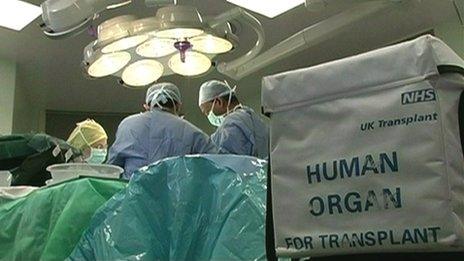Organ donation: Law change 'not enough', says expert
- Published
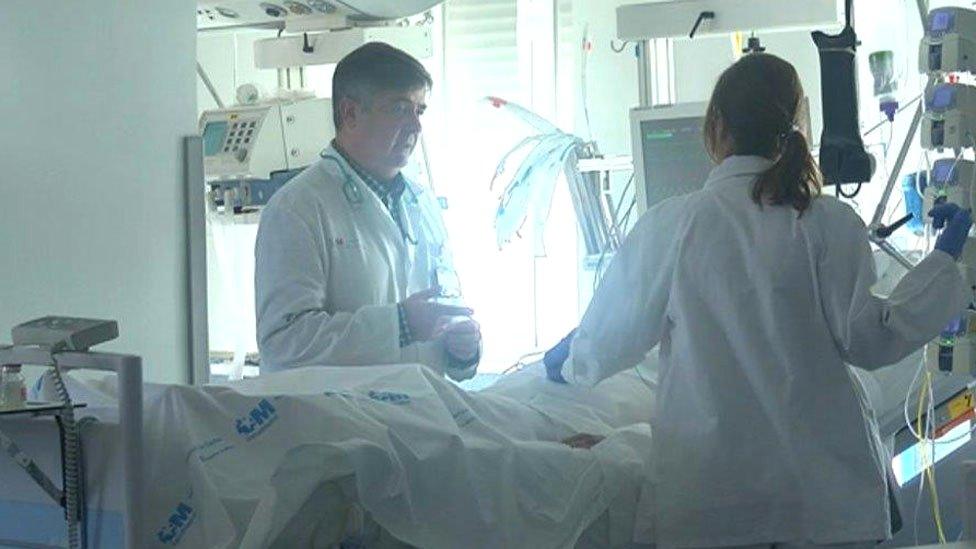
One of the world's leading transplant experts has said Wales will need to do more than change the law to increase organ donations.
Dr Rafael Matesanz is medical director of the Organizacion Nacional de Trasplantes in Madrid.
He said an "open discussion" among families and systems being geared up in hospital intensive care were more important factors.
The Welsh government has encouraged people to speak about organ donation.
Spain has the highest organ donation rate - 36 donors per million people - compared to just under 20 in the UK and 23.1 in Wales.
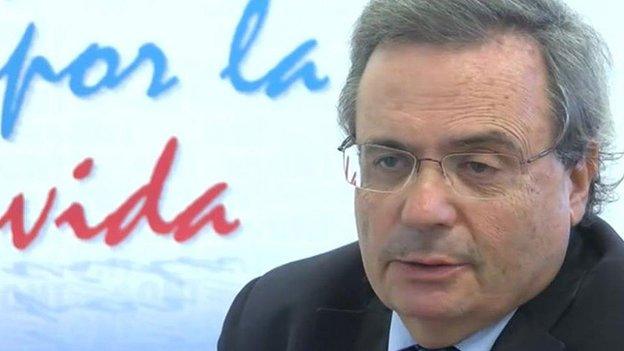
On Tuesday, Wales becomes the first UK nation to introduce a system like Spain's where consent is assumed unless people have opted out.
Dr Matesanz - who advises countries all over the world, including Wales - attributes Spain's success over the last 20 years to being better prepared in intensive care.
Spain moved from transplant coordinators being nurses or technicians to doctors in intensive care at every hospital.
These doctors take a lead role in spotting potential donors among patients and approach the family, meaning they are then more prepared for a potential operation.
"Most donors are lost not because the family refuses but because potential donors are not detected adequately," said Dr Matesanz.
He said the UK has managed to increase donations over the last five years with the use of doctors as donation "champions" alongside nurse transplant coordinators.
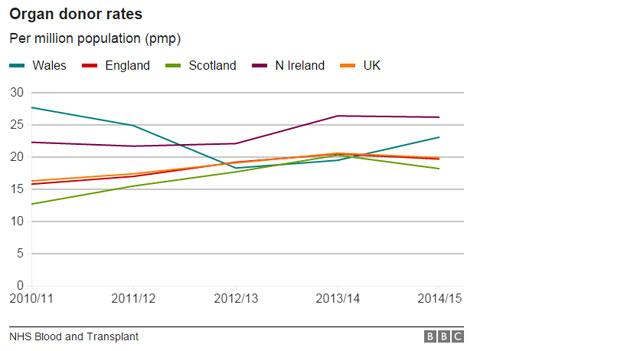
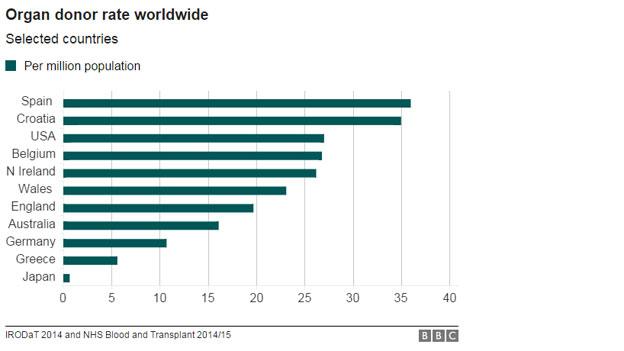
Dr Miguel Sanchez, head of critical care at Madrid's Hospital Clinico San Carlos, said the transplant specialists were on call 24 hours a day.
"When there's a donation there's a lot of work; it takes somewhere between 12 and 16 hours of continuous work.
"It's like a shift of any other speciality in the hospital and you need to pay for that."
Dr Ines Garcia talks to BBC Wales health correspondent Owain Clarke about how the system works in intensive care in Madrid
Dr Matesanz said that the law does not make a lot of difference when you looked across Europe, as families are always involved and have a final veto - with between 15 to 20% saying no.
He said Wales should not expect a big improvement in organ donation just from changing the law and that a public debate, where opinion is split, could sometimes backfire and lead to a distrust of the system.
But he agreed it was important that families had discussions about the issue.
"In Spain, we don't promote donor cards, our only message is do you want to donate your organs? Talk to your family," he said.
"We're a country with a high support for organ donation but there are a lot of people who are rushed to hospital and no-one knows what their opinion [on donating their organs] is.
"It's something so simple but there are people who don't want to talk about it."
- Published6 October 2015
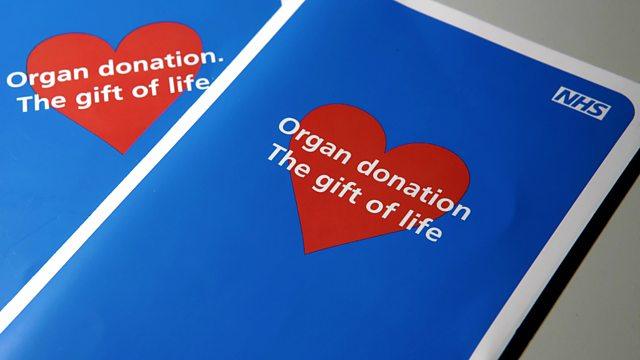
- Published23 August 2015

- Published10 August 2015
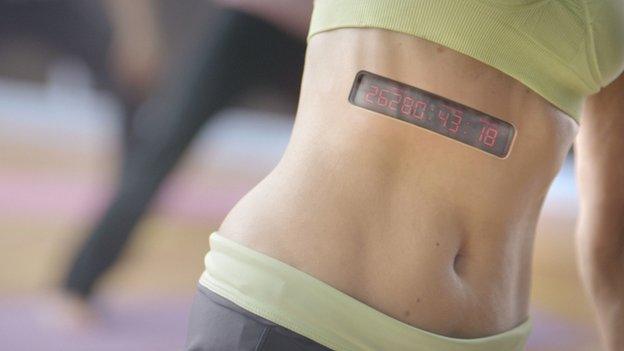
- Published20 July 2015
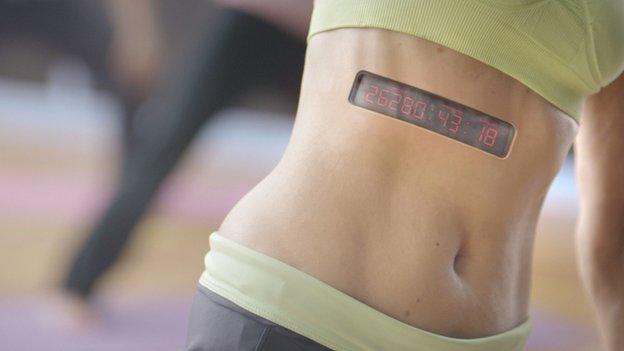
- Published19 January 2015
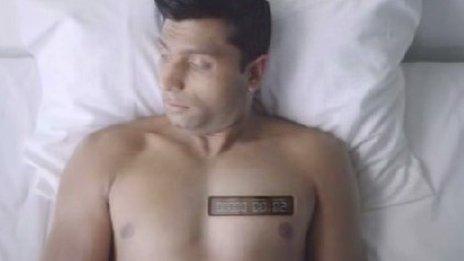
- Published10 September 2013
